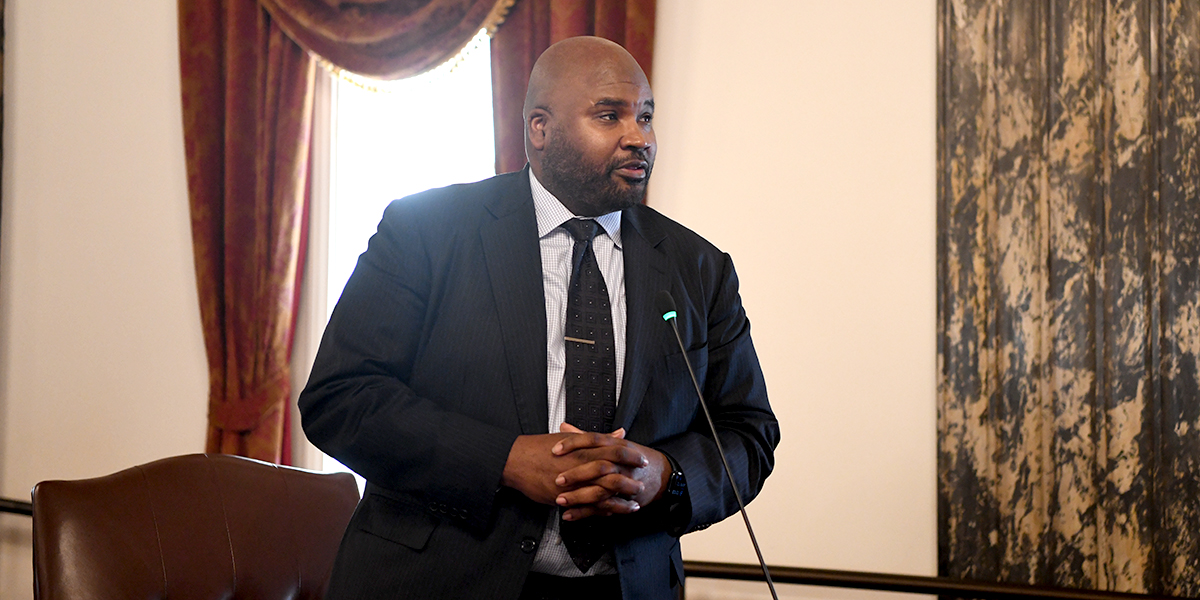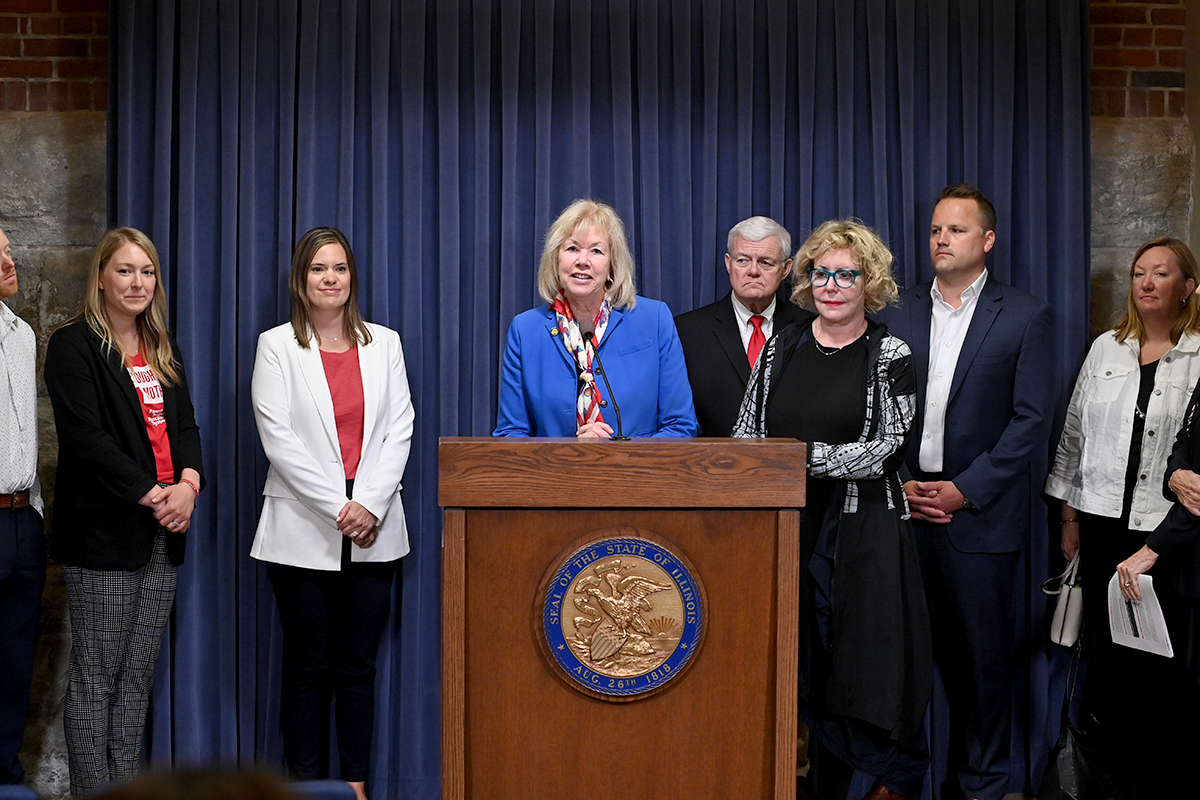- Details
- Category: Senator Ram Villivalam News
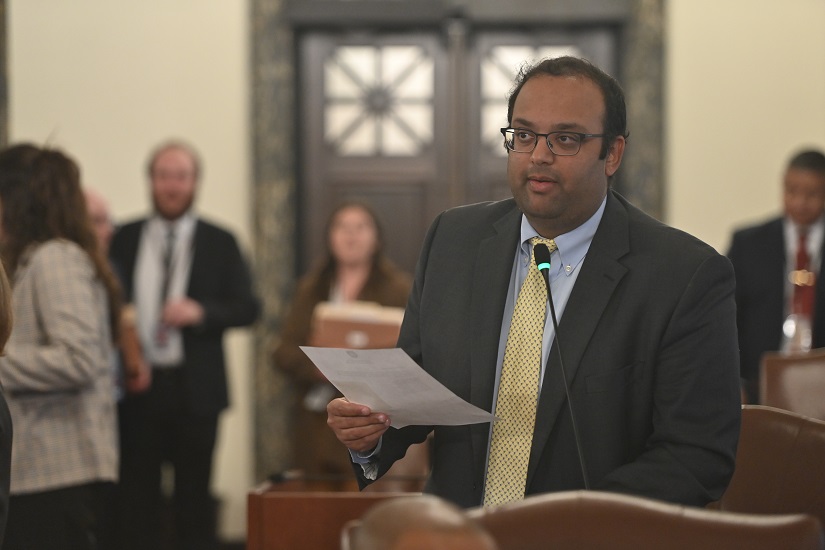 SPRINGFIELD - A measure sponsored by State Senator Ram Villivalam would make it easier for people who have completed masonry programs to receive community college credit.
SPRINGFIELD - A measure sponsored by State Senator Ram Villivalam would make it easier for people who have completed masonry programs to receive community college credit.
“Supporting people who are continuing their education is imperative,” said Villivalam (D-Chicago). “By including masonry into one of the non-degree programs that can be accepted, we will ensure that education is more accessible and equitable.”
The measure would ensure that community colleges accept up to 30 credit hours transferred from a non-degree institution for finishing a masonry program. Currently there are 36 non-degree programs that can be approved, which include programs such as general carpentry, pharmacy technician and welding.
- Details
- Category: Senator Linda Holmes News
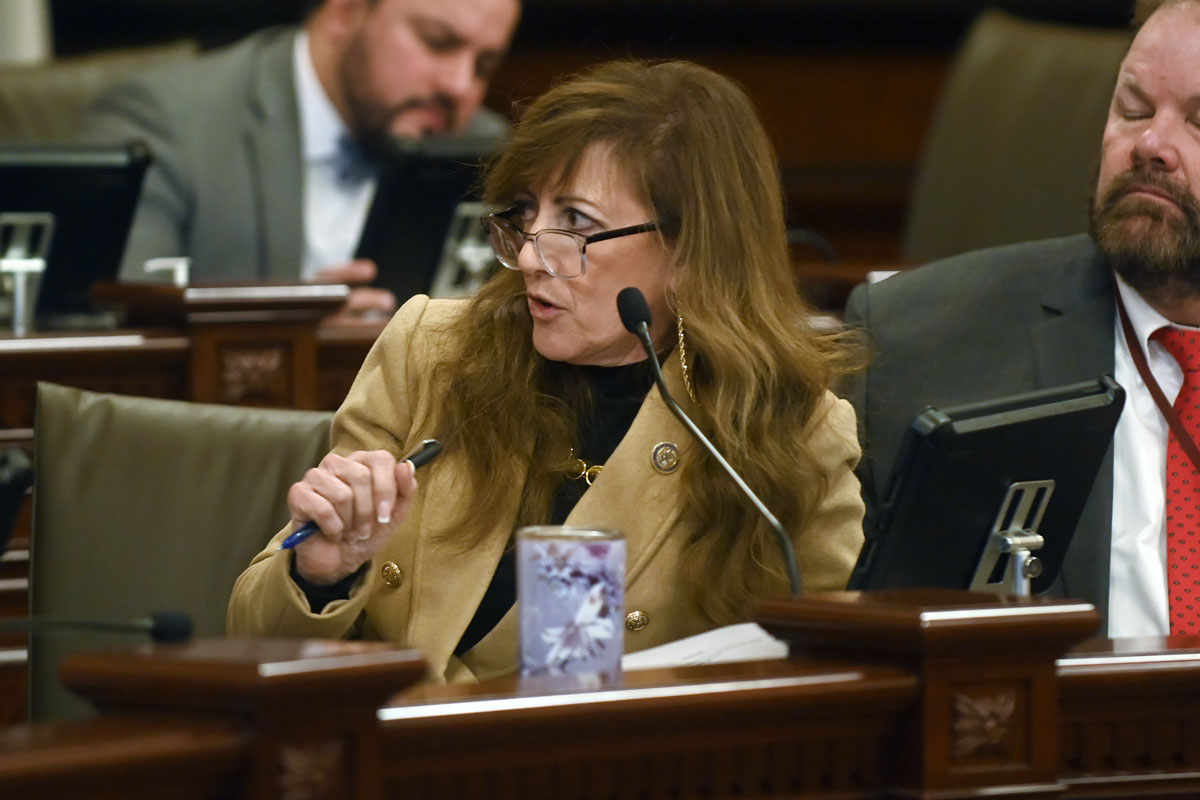 SPRINGFIELD – State Senator Linda Holmes advanced a measure through the Senate Insurance Committee on Tuesday that would require insurers to cover treatment for the mental and emotional effects for individuals who have experienced a miscarriage or stillbirth.
SPRINGFIELD – State Senator Linda Holmes advanced a measure through the Senate Insurance Committee on Tuesday that would require insurers to cover treatment for the mental and emotional effects for individuals who have experienced a miscarriage or stillbirth.
“For most expectant parents, pregnancy means happy preparations to welcome a healthy infant to their new family,” said Holmes (D-Aurora). “The shock and grief of an unexpected pregnancy loss can be overwhelming — it may trigger anxiety, stress and depression, and contribute to substance abuse.”
The Illinois Insurance Code currently requires coverage for mental, emotional, nervous or substance use treatments as they are under the federal Affordable Care Act. House Bill 5282 will explicitly add coverage for miscarriage or stillbirth in addition to the benefits already required by federal law.
- Details
- Category: Senator Celina Villanueva News
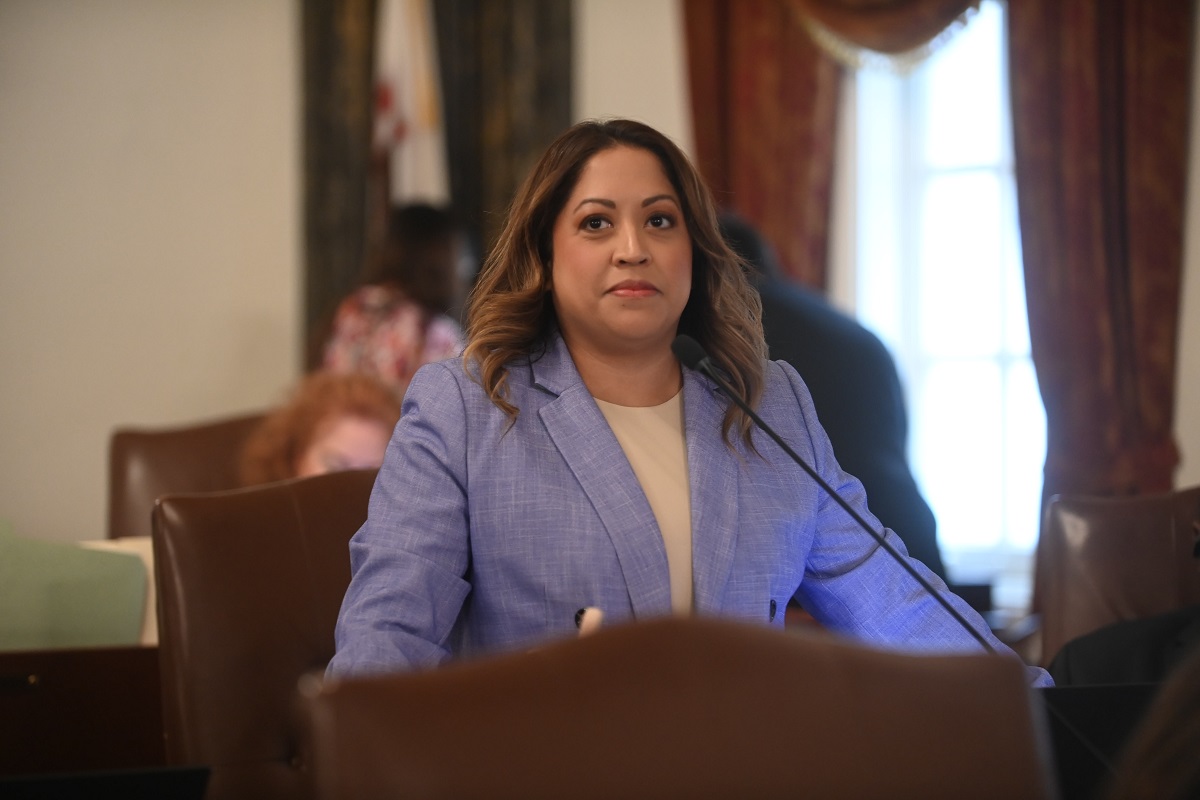 SPRINGFIELD – State Senator Celina Villanueva is leading a measure to protect construction workers by enhancing Scott’s Law.
SPRINGFIELD – State Senator Celina Villanueva is leading a measure to protect construction workers by enhancing Scott’s Law.
“It is essential that we establish safety measures to help drivers navigate zone changes to prevent accidents,” said Villanueva (D–Chicago). “Enhancing Scott’s Law is a simple step to ensuring the safety of construction workers.”
Scott's Law requires drivers to change lanes when approaching stationary emergency vehicles, including highway maintenance vehicles displaying flashing lights, and any stationary vehicle with their hazard lights activated. The measure also states, if changing would be impossible or unsafe, drivers would be required to proceed with due caution, reduce the speed of the vehicle and leave a safe distance until safely passing the stationary vehicle.
Read more: Villanueva advances measure to enhance Scott’s Law
- Details
- Category: Senator Mike Simmons News
 SPRINGFIELD – State Senator Mike Simmons is leading a groundbreaking initiative aimed at empowering caregivers to provide culturally competent haircare for youth placed under their care by the Department of Children and Family Services.
SPRINGFIELD – State Senator Mike Simmons is leading a groundbreaking initiative aimed at empowering caregivers to provide culturally competent haircare for youth placed under their care by the Department of Children and Family Services.
“This initiative is designed to promote healthy hair and self-confidence and addresses a critical need in our communities,” said Simmons (D-Chicago). “Haircare is not just about looking good or feeling pretty. Hair is deeply intertwined with cultural identity and self-esteem. For many youth, especially those from diverse backgrounds, finding appropriate haircare while navigating the foster care system can be a challenge.”
Recognizing this challenge, House Bill 5097 requires DCFS to include a Haircare Plan during case review outlining the necessary training and resources needed to ensure each child receives culturally competent haircare. Simmons’ measure outlines a plan that addresses culturally competent haircare training including preservation of youth’s cultural, gender and religious identities, and guidance for routines that promote healthy hair.
Read more: Simmons Leads Bill Requiring Caregivers to Provide Culturally Competent Haircare
- Details
- Category: Member News
 CHICAGO — State Senators Robert Peters, Elgie R. Sims, Jr. and Celina Villanueva joined advocates and community leaders Tuesday outside the Capitol in support of permanent funding for the Reimagine Public Safety Act.
CHICAGO — State Senators Robert Peters, Elgie R. Sims, Jr. and Celina Villanueva joined advocates and community leaders Tuesday outside the Capitol in support of permanent funding for the Reimagine Public Safety Act.
“Our sole objective today is to ensure community violence intervention programs receive the funding they need,” said Peters (D-Chicago). “After enduring years of a system built to fail us, we've constructed a framework targeting the root causes of violence in our most underserved and overlooked communities. It's high time we pledge continued investments in these communities, and I am proud to lead this charge in the Senate.”
Signed into law in 2021, Peters championed the Reimagine Public Safety Act to address gun violence in Illinois by working with the communities most affected. Since becoming law, legislators have pursued additional measures to expand the act, bringing gun violence prevention training and programs to more areas. These programs often include initiatives such as conflict mediation, youth mentoring, job training, and community outreach.
- Details
- Category: Senator Robert Martwick News
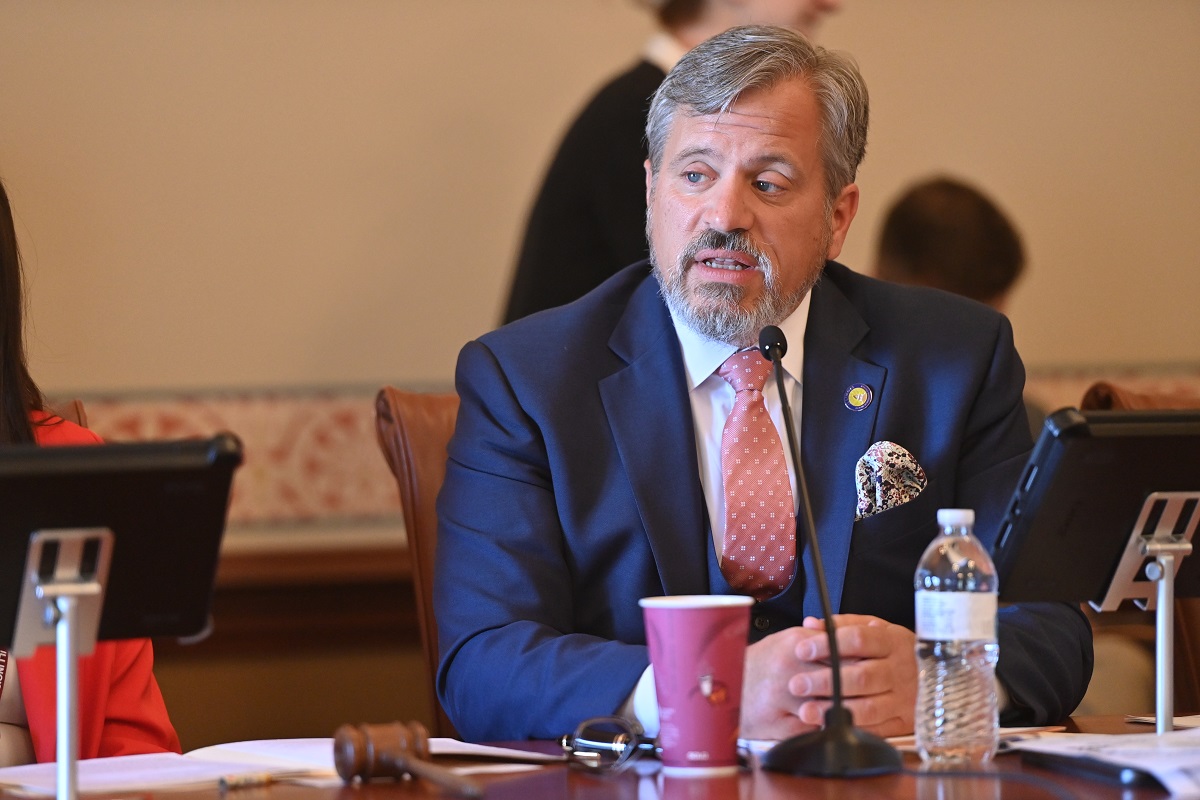 SPRINGFIELD — Chicago homeowners who pay into home equity assurance programs could soon see their tax dollars put to better use through increased access to home repair, thanks to a measure presented by State Senator Robert Martwick.
SPRINGFIELD — Chicago homeowners who pay into home equity assurance programs could soon see their tax dollars put to better use through increased access to home repair, thanks to a measure presented by State Senator Robert Martwick.
“This bill allows home equity programs to serve their communities — communities that need aid after the unprecedented flooding we’ve experienced in the past few years,” said Martwick (D-Chicago). “Members pay into their programs for years, and it’s time we ensure they benefit.”
Illinois first allowed the creation of home equity assurance programs — or HEAPs — in 1987 with the goal of preserving the value of a resident’s property. The programs are funded through property taxes collected from homeowners in the HEAP district, who can enroll in the program by paying for an appraisal of their home. In return, they receive the guarantee that if they own the home for five years, they will not lose money when they sell their homes if the market value has dropped.
Read more: Martwick champions home equity assurance reform to uplift homeowners
- Details
- Category: Senator Mike Halpin News
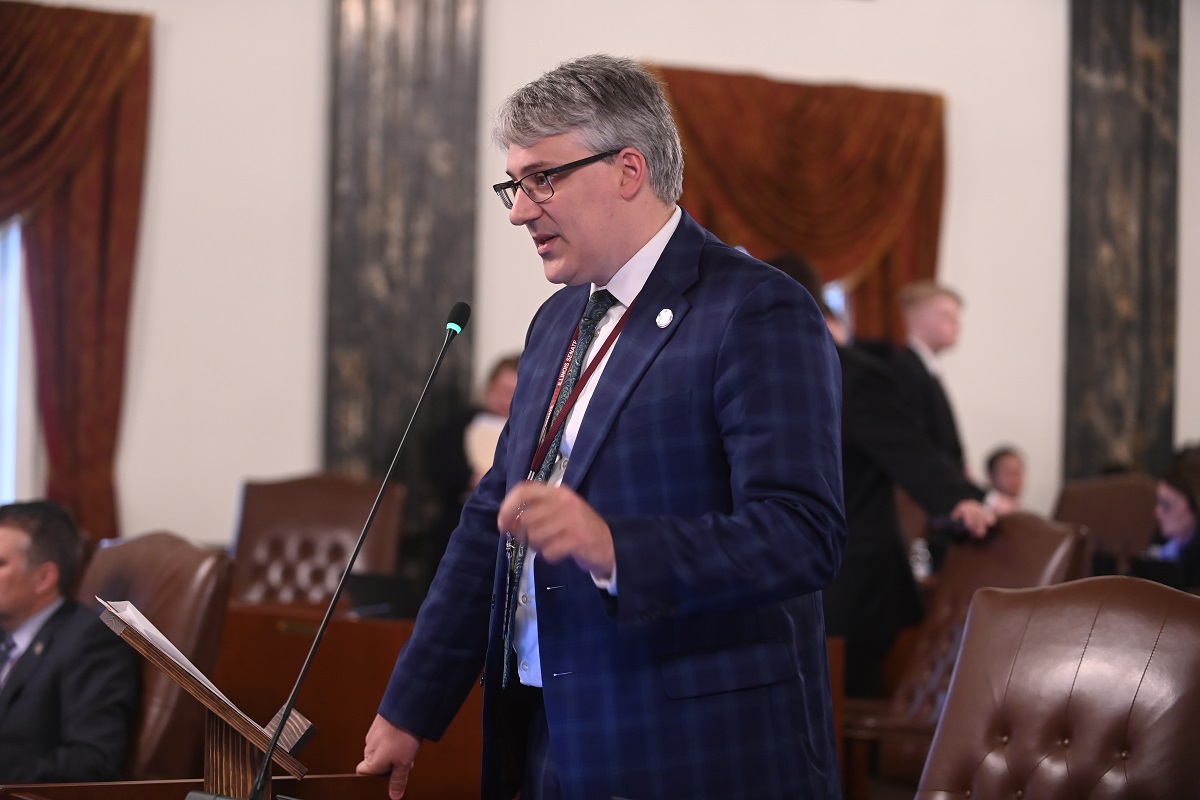 SPRINGFIELD – State Senator Mike Halpin advanced a measure to create specialty Air Force Combat Action Medal license plates.
SPRINGFIELD – State Senator Mike Halpin advanced a measure to create specialty Air Force Combat Action Medal license plates.
“We are simply acknowledging the sacrifice these combat veterans made for our country,” said Halpin (D-Rock Island). “This move is a small way for us to give Air Force veterans the recognition they deserve.”
Currently, the Air Force is the only branch of the military that does not have a license plate for combat veterans. The Illinois Secretary of State is authorized to issue Combat Action Ribbon license plates to members of the Navy, Coast Guard and Marine Corps, and Combat Action Badge license plates to special groups within the Army.
Read more: Halpin creates specialty Air Force license plate for combat vets
- Details
- Category: Majority Report
Senate Democrats celebrate improved fiscal outlook
SPRINGFIELD – Moody’s Investors Service, a major credit rating agency, revised the state’s outlook to “positive” – a move that can be attributed to the stability and responsibility of the Illinois Senate Democratic Caucus.
“Moody’s is recognizing what has been recognized time and again with the state’s nine consecutive credit upgrades in the last two years: our fiscal responsibility is paying off,” said Senate Majority Appropriations Leader Elgie R. Sims, Jr. (D-Chicago). “Our future looks bright and I look forward to continued collaborative efforts with my colleagues to keep Illinois on this upward economic trajectory.”
Faraci honors late Senator Scott Bennett
DANVILLE – To honor the life and legacy of the late Senator Scott Bennett, State Senator Paul Faraci joined elected officials, community members, as well as friends and family of Scott Bennett at a memorial to name portions of I-74 the "Senator Scott M. Bennett Memorial Highway."
“Senator Bennett continues to be remembered as a leader in our communities who dedicated his life to serving the people of Illinois,” said Faraci (D-Champaign). “He will forever be missed, but his legacy will never be forgotten. This is one way we can continue to honor him for decades to come.”
Morrison leads measure to improve early diagnosis of fatal pediatric disease
SPRINGFIELD – Standing alongside advocates from Parent Project Muscular Dystrophy at a press conference, State Senator Julie Morrison outlined her initiative to require each newborn to be screened for duchenne muscular dystrophy.
“DMD is a devastating disease – tragically taking young children from their parents,” said Morrison. “Requiring every newborn to be screened for duchenne muscular dystrophy will save precious lives and restore hope.”

In case you missed it
MEMBERS IN THE NEWS
Senator Lakesia Collins, Chicago: Illinois senate passes legislation that would help individuals access their deceased families’ records | WAND
Senator Laura Ellman, Naperville: Bill expanding access to fentanyl test strips proposed by intern to Naperville senator | Chicago Tribune
Senator Laura Murphy, Des Plaines: Getting juvenile offenders on the right path | Taylorville Daily News
Copyright 2024 - Illinois Senate Democratic Caucus - All Rights Reserved
More Articles …
Page 122 of 768
